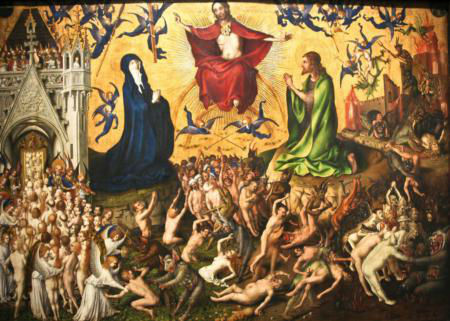Do beliefs matter? / Forgiveness for divorced and remarried
Q. Please help me to know how to answer people who say, "It doesn't matter what religion or beliefs you have, since we're all going to the same place anyway." (Versailles, Kentucky)
A. The quote you offer strikes me as a species of what the Second Vatican Council called "false irenicism." That is a fancy expression to describe the habit of playing down doctrinal differences for the sake of keeping the peace. (It comes from the Greek word "eirene," meaning "peace.") The council's "Decree on Ecumenism," in No. 11, said: "Nothing is so foreign to the spirit of ecumenism as a false irenicism, in which the purity of Catholic doctrine suffers loss and its genuine and certain meaning is clouded."
Simply put, what people believe matters. If I believe that God revealed himself by coming to earth in the person of Jesus, then I consider myself obligated to examine seriously what Jesus had to say and to align myself with whatever religious institution carries that teaching forward most faithfully. This certainly does not mean that someone must be a Catholic, nor even a Christian, to be saved.
In fact, the Catechism of the Catholic Church explicitly rejects that restrictive notion in No. 847, referencing Vatican II's "Constitution on the Church," where it says: "Those who, through no fault of their own, do not know the Gospel of Christ or His Church, but who nevertheless seek God with a sincere heart and, moved by grace, try in their actions to do his will as they know it through the dictates of their conscience -- those too may achieve eternal salvation."
But I believe that Catholics get "extra help" along the way to heaven -- especially through the sacraments but also through the guidance of church teaching, since the truth of its fundamental doctrines is guaranteed by Christ. I, for one, am supremely grateful to be a Catholic and, to me, it makes a very big difference indeed.
Q. Sometimes things happen in life that we have no control over. You marry and your partner is unfaithful or cruel or he just disappears. Many times a woman is left alone, with children to raise by herself. The [Ten] Commandments say, "Don't kill, don't steal, keep holy the Sabbath, etc." and if we break any of them, we can go to confession, be forgiven and receive the sacraments. But a divorced person who remarries outside the church cannot be forgiven. Why does the church single out that person for punishment? (Walterboro, South Carolina)
A. The technical answer to your question is this: Sins are forgiven in confession when a person is sorry for them and has a "firm purpose of amendment." In other words, the person has the sincere intention of changing the behavior being confessed. When a person is divorced and has remarried outside the church, they may be sorry for the circumstances which led to this but rarely do they intend to change their status by leaving the second marriage.
But you deserve much more than a technical answer. I have deep sympathy for the situation you describe and pray that the church will find a way to deal humanely with such complex circumstances; there is strong evidence that the bishops gathered at the October 2014 synod felt your pain.
The concluding report on the Synod of Bishops on the family had two paragraphs that dealt with a proposal that would make it easier for divorced and civilly remarried Catholics to receive holy Communion. Though these two paragraphs did not get the required two-thirds vote for consensus and final approval, they did receive a simple majority and it seems likely that, with the benefit of further study, the matter will be raised once more at the larger synod in October 2015, which will make recommendations to the pope.
---
Questions may be sent to Father Kenneth Doyle at askfatherdoyle@gmail.com and 40 Hopewell St., Albany, N.Y. 12208.
- Father Kenneth Doyle is a columnist for Catholic News Service



















